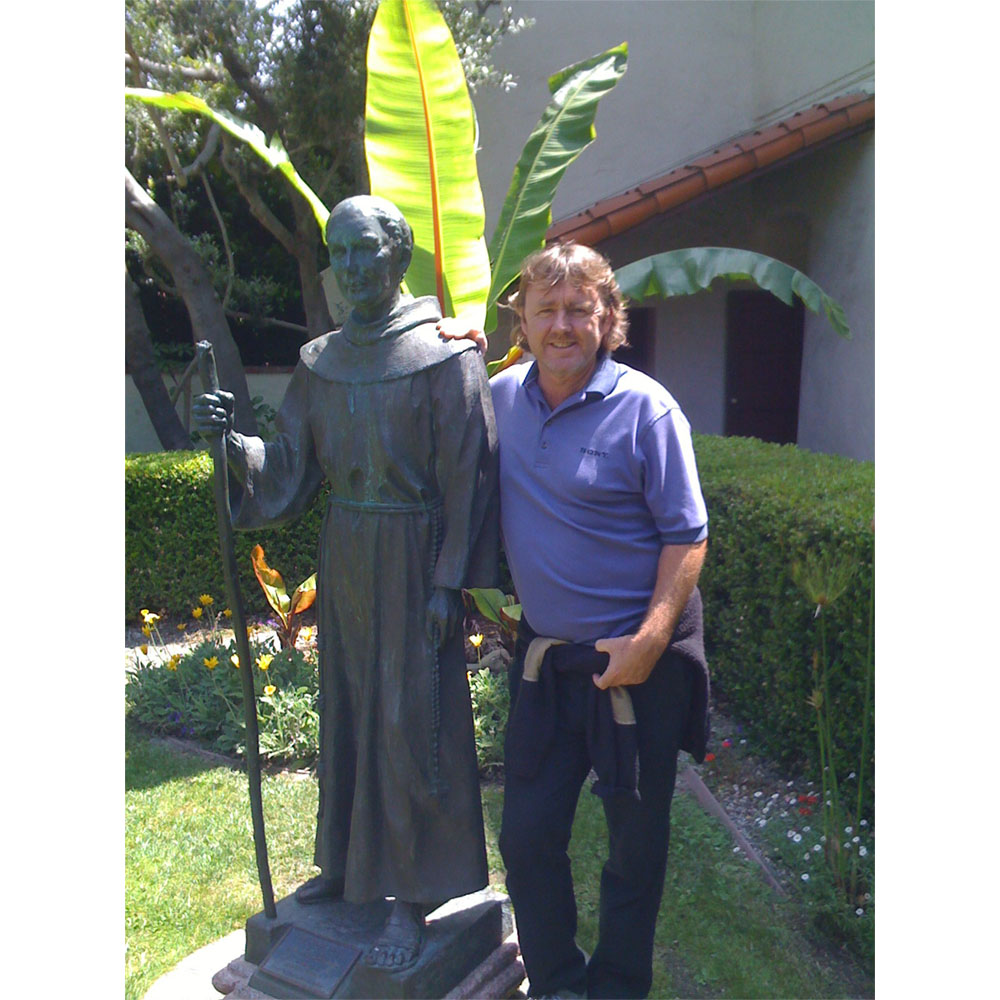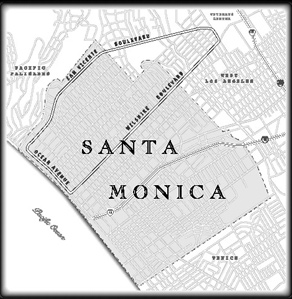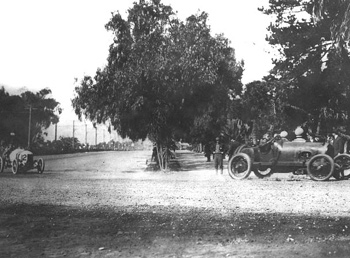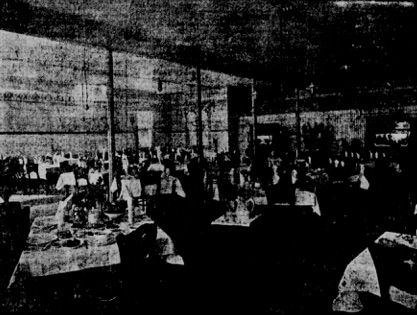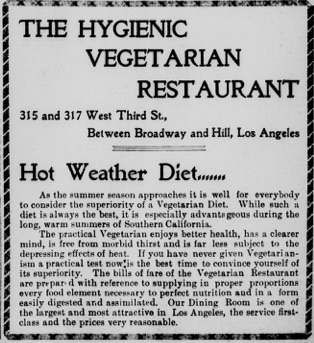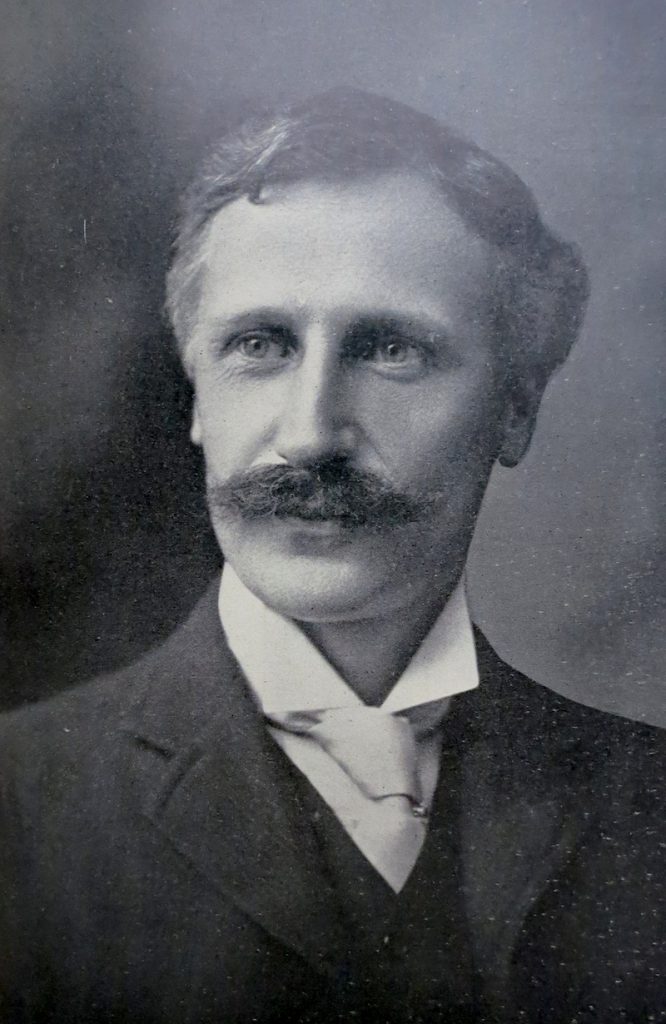
Arthur Letts was a huge part of Los Angeles history from 1894 until his death in 1923. He founded Broadway Department Store, Bullocks, and invested in real estate downtown, in Ocean Park, Hollywood, and West Los Angeles. Letts was a director of H.J. Whitley’s, Los Angeles Pacific Boulevard and Development Company; the company that owned and developed much of the land between Hollywood and Los Angeles at the turn of the 20th century. The company built Sunset and Hollywood boulevards, and started boulevard-naming in Los Angeles!
Arthur was born in 1862, in Northamptonshire, England, where the Letts family had lived in Holdenby Lodge for centuries. They arrived in England in the 8th or 9th century with the Viking Norsemen, having originated in modern day Latvia.
Arthur left the farm for work in the retail business, and by the time he was 21, he and a brother decided to leave England for Canada. He ended up in Toronto, where he was unfortunate to have joined the Grenadiers and the Queen’s Own, just in time to slog across the country in wintertime for the second Indian Rebellion, led by Louis Riel in 1885, where her attended the Battle of Cut Knife Creek.
Letts left Canada for greater opportunities in Seattle in 1889, arriving just in time for a devastating fire that destroyed the young city. His next retail venture also failed in Spokane.
Undeterred he headed to Los Angeles with family and children in 1894, and two years later he started the one room Broadway Department Store, which by 1903 opened a 144,000 square feet store. The Broadway’s slogan was; “Don’t Worry, Watch us Grow.” which it did for two decades with Arthur at the helm.
Arthur Letts was a member of the Los Angeles Chamber of Commerce, the Realty Board, Municipal League, City Club, Hollywood Board of Trade, Federations Club, and the Automobile Club. He was also a Master Mason, a Templar, and a Shriner.
Letts was on the first relief train to leave Los Angeles for San Francisco after the Great Earthquake of 1906. He stayed for weeks, helping with reconstruction, and was honored by the city of San Francisco for his contribution and service.
In Hollywood, Letts owned the Gower and Franklin Ranch, the Gem of Hollywood, and Holmby Avenue, subdivisions, as well as his one hundred acre showplace, Holmby House and Gardens, which he had built in 1905, and which he opened to his employees, and later to the public. Holmby House had its own trolley stop, and one of the finest botanical gardens in Southern California, which was personally planned and managed by Arthur Letts.
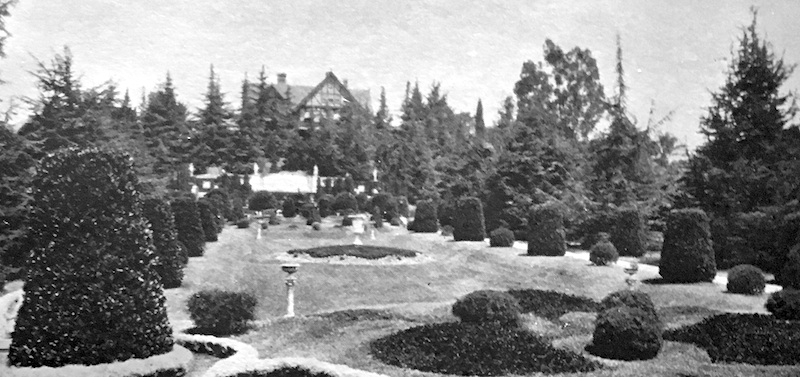
Letts was also president of the Y.M.C.A., the Boy Scouts (he donated 10 acres of Miller Canyon for their camp), chairman of the LA Chamber of Commerce Relief Committee during WWI, the American Red Cross representative for California, the Salvation Army, McKinley Home for Boys, the L.A. Philharmonic, and made countless beneficial contributions to Los Angeles, California, the United States, and the World.
Arthur Letts started playing golf late in life. He was a long time member and director of the Los Angeles Country Club, where his son, Arthur Jr., was also a fervent member. Letts also belonged to the Los Angeles Athletic Club, Wilshire Country Club, Flintridge Country Club, and the Eagle Waters Golf Club.
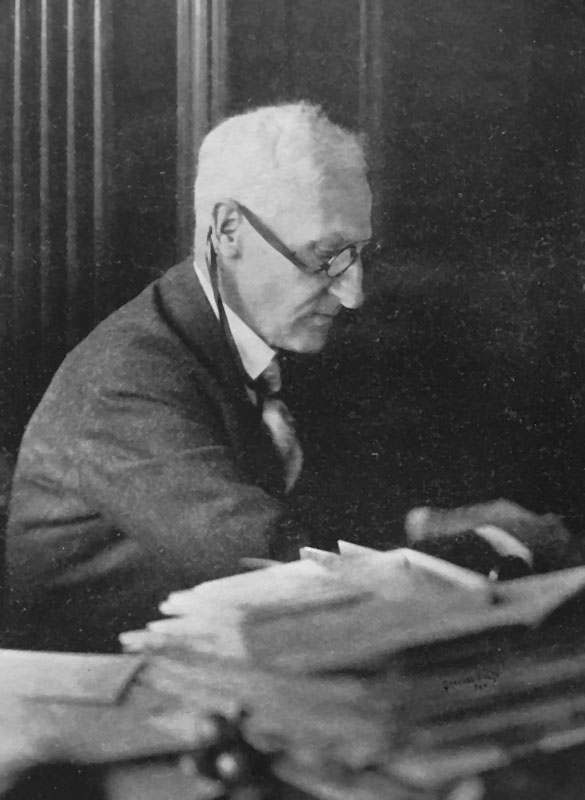
After World War I, in 1919, during a crisis of confidence in Los Angeles real estate, Letts bought the 3,296 acre Wolfskill Ranch on the Rancho San Jose de Buenos Aires, for $2 million dollars. It was the last undivided piece of land in Los Angeles County. The borders were: Beverly Hills, Sepulveda boulevard, Sunset and Pico boulevards.
Letts’ daughter was married to real estate developer Dr. Harold Janss, of the Janss Investment Company. Letts hired Janss’ company, to subdivide the land (naming it Westwood Hills, and Westwood), constructing roads, planting trees, building sidewalks curbs, water mains, electricity and gas lines, street lighting, sewage, and drains, spending $2.4 million dollars ($3,000 an acre) in 1923 on the first 800 acre portion of the infrastructure!
In addition to his many businesses, Arthur Letts was a Normal School (University of California) trustee, and first suggested that they build their new campus in Westwood, offering to donate the land. Unfortunately, shortly before his death in 1923, the Janss company announced their purchase of Westwood from Letts for $7 million dollars, offering to sell the land to the University.
After Arthur Letts died in 1923, Arthur Jr., built his rambling English manor residence overlooking their beloved Los Angeles Country Club in Janss’ new Holmby Hills tract. Many years later, the house became Playboy Mansion West.
In 1926, the Janss’ donated a small portion of land, next to Holmby Hills, to the city of Los Angeles to be used as a public park. L.A. Park commissioner Van Griffith, son of Griffith Park donator, Griffith Jenkins Griffith, devised a plan for bowling greens and an 18-hole “pony” golf course. In 1982, Playboy’s Hugh Hefner, and Dr. Armand Hammer, came to the rescue of Holmby Hills park, which was then threatened with closure due to city budget cuts. The park, golf course and bowling greens survived, and are still operated by the Recreation and Parks Department of the City of Los Angeles.
In 1936, despite leaving maintenance money for his beloved garden in his will, Arthur’s famous Holmby House and Gardens were bulldozed and subdivided by the Janss’, with many of the beautiful trees and plants sold to Henry Huntington’s estate in San Marino, and others taken to Arthur Jr.’s estate in Holmby Hills.
After Arthur Letts Jr. died in 1959, Louis Statham bought the Holmby Hills estate, which was then used for many charitable events, and as the unofficial event house for the Mayor of Los Angeles. In 1971, it was bought by Hefner and became Playboy Mansion West.
As of 2018, the Letts house is not being preserved for the future, as the latest owner has been permitted by the Los Angeles city council to deny the house historical status, allowing untethered reconstruction.
Both Arthur’s would be rolling in their graves, as would Hefner and Hammer.
Shame on you Los Angeles.
Photo from https://jamescolincampbell.com/arthur-letts/
and http://hollywoodphotographs.com/detail/4718/arthur-letts-home-at-4931-franklin-ave/
©2018 jibjones All Rights Reserved

